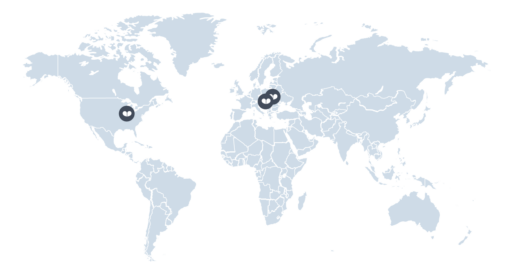Scenario Planning: What it is and why you need it
By failing to prepare you are preparing to fail.
Benjamin Franklin
Though Benjamin Franklin likely thought up these words at the end of the 18th century, they ring just as true today as they did then. Indeed, this quote applies to many choices we make – especially in business.
Of course, you know all this because you didn’t get to where you are today without careful planning. You’ve likely already devised a winning marketing strategy to grow your company and understand that sticking to a solid plan is the only way to succeed.
But the type of planning you’re likely used to seldom considers variables outside of your control. Scenario planning is an effective way to probe the future and explore possible outcomes. It helps you think of the future with a different approach – it forces you to think up scenarios and devise a plan of action if they become a reality.
Let’s look at what scenario planning is and why it’s essential for your company.
What is scenario planning?
The US military developed scenario planning in the 1950s as a storytelling technique for predicting the future. The technique was undoubtedly kept secret because it wasn’t until 1971 that it was used in practical development by the Dutch Royal Shell group. Since then, major corporations have perfected scenario planning to foresee alternate futures and prepare to face the most hostile situations.
In business, scenario planning helps professionals respond to the uncertainties of the future. It gives them the ability to think ahead about how the future may unravel and develop ways to best adapt to these circumstances if they occur. It’s used to make decisions and navigate the unknown future in the mid and long term. An effective scenario plan takes into account the current state of things, possible forecasts, and internal and external elements that may produce a significant change in the business landscape.
Let’s put it in perspective by imagining that your company plans to release new software. You’ve studied the market, know the competition, and devised a solid marketing plan. You’re confident it will succeed.
But did you ask yourself, what if?
What if there isn’t sufficient demand for it? What if a competitor releases a similar software that’s cheaper and just as good? What if an innovation renders your software obsolete?
Scenario planning helps you prepare for these eventualities, so you can rapidly counteract the negative effect of a given situation.
Why is scenario planning essential for your company?
While living in the moment is a wonderful way to live a peaceful life, the same cannot be said in business. To stay one step ahead of the competition, you have to look into the future and find ways to improve and innovate your products and services consistently – you must look to the future, not the present.
That being the case, wouldn’t you want a way to prepare yourself for what is to come? While no one could have planned for the recent pandemic and the recession it triggered, what if you could have had a plan of action for this kind of catastrophe?
But that’s not all. Scenario planning can help you in many other ways:
- Find gaps in your business model
- Solidify your purpose
- Address issues you weren’t aware of
- Prevent future problems
- Identify new opportunities
- Prepare your budget in case of an emergency

Like a battle plan, it’s essential to anticipate what could happen. That way, you’re never blindsided. You’re also more inclined to identify the signs of a significant change looming in the distance.
Plan for the worst, and the best
What’s the worst that could happen? That’s not the only thing that scenario planning can help with. It also allows you to plan for the best that could happen.
Let’s go back to your software from earlier, and let’s imagine that it’s a massive success. Did you plan for that eventuality? If you did, you could set a plan of action to launch a campaign that would help you capitalize on your success right away to boost your sales before they level off or start to dwindle.
You can think of scenario planning as a low-cost insurance policy that can help your company face challenges and successes.
Which companies can benefit from scenario planning?
Whether you’re a startup, small business, or a major corporation, using scenario planning can be a significant asset. It helps you see further into the future with more clarity, enabling you to make wiser decisions. It also gives you a better understanding of outside factors that you didn’t know could affect your industry. And most importantly, it makes your company better equipped to overcome the uncertainties of tomorrow.
Last thoughts
Scenario planning isn’t a way to predict the future; it’s a way to prepare for it. It’s a form of storytelling that can help your company plan its next moves by weaving fictional stories that ask “what if.” When you introduce scenario planning to your company, you propose a new way of thinking – a method that considers alternatives and acknowledges different perspectives.
No one knows what tomorrow might bring; it’s up to us to prepare accordingly.
Author

Peter Fechter
Peter is Digital Marketing Manager at MARMIND and is mainly responsible for website and lead management. When he's not busy creating content, he is developing new strategic approaches for campaign planning.










